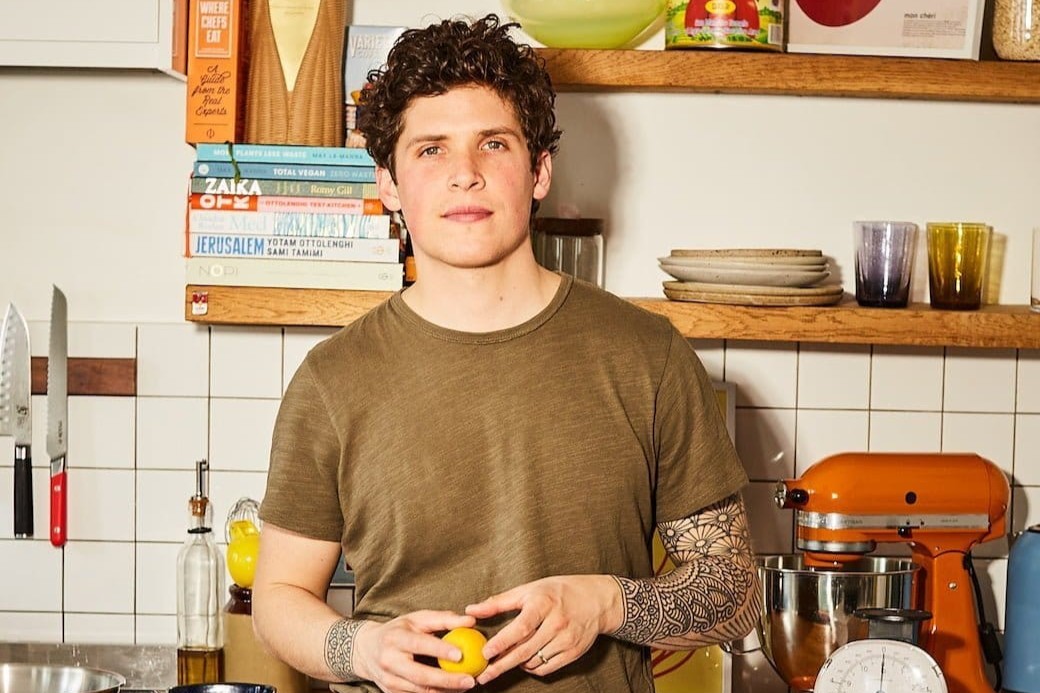It’s not uncommon for students and starving artists to sling hash part-time to pay the bills. But for those interested in a career in hospitality, short-term restaurant jobs — or even a hospitality degree — won’t teach you all the pragmatic skills you need to brave the industry’s rough waters. There’s a lot of hands-on experiences school can’t prepare you for — but maybe a seasoned chef can.
Zero-waste vegan chef Max La Manna, former line cook at three-Michelin-starred restaurant Eleven Madison Park, knows the stress of finding a job in this eclectic industry. Now 35, La Manna began working in the restaurant industry at the age of 16, and has tried his hand at everything from hosting, serving, bartending, bussing, running and eventually to cooking in the back of the house.
After attending the University of Connecticut for business administration and management, La Manna led a career as an actor and model, during which he worked restaurant side gigs and became infatuated with the industry. Currently, he’s the author of two vegan cookbooks and a social media influencer with one million followers, known for his vegan recipes and day-in-the-life videos from his time working the backline at Eleven Madison Park. WSN sat down with La Manna to learn about how to navigate the service industry as a novice.
This interview has been edited for length and clarity.
WSN: Do you think someone has to study food or hospitality in order to work in the restaurant industry? If not, is there a good first step for students looking to get involved?
La Manna: Hell no. People have to take urgency and question everything. Anyone who’s inquisitive and willing to learn will do well in the industry. For those who are just starting out, and even those who have been in the industry for years, I would say to keep being a sponge: Always continue to grow and ask questions. Obtain wisdom from people who have been doing things a lot longer than you — it’s kind of a cheat code. I also think everyone should start in the front of the house because you learn how to treat people. Sometimes in the kitchen it’s easy to get lost in the craft and disconnect from guests because you’re never actually interacting with them. By working as a host or a server, you get to see how these dishes and drinks actually affect people — cook once you have that understanding.
I would also say bartending is a good bridge from front of house to back of house. Bartending let me talk to guests while also experimenting with ingredients and curating a drink specific to each guest. This set my fire for food — going the extra step to show a guest you care about personalizing an experience for them.
WSN: How did you develop your zero-waste mission without a background in science?
La Manna: Food has always been a part of my life, and it doesn’t take a rocket scientist to figure out something needs to change. When I was working in the kitchen, I started realizing how much excess food was piling up that we would just discard. I started asking myself, ‘where is this food going and what can we do about it?’ I knew I needed to make a change, and sometimes that spark is all you need.
We also have access to so much technology now. Take search engines for example: Any question we have can most likely be found on the internet. I did all my research online and read a lot of books. I found out that not everything in sustainable cooking has to be scientific — a lot of what helped me reduce waste was choosing plastic-free options, weighing my own ingredients, shopping local and going to farmers markets, stuff like that. Don’t be afraid to try just because you think you don’t know enough — trial and error is the best method for success.
WSN: In your experience working with younger chefs at high-functioning restaurants like Eleven Madison Park, what do you think is a skill that makes some people stand out from the rest?
La Manna: Timeliness is the most important skill for any job, but for front of house specifically, I’d say to keep it genuine and don’t read from a script when talking to guests. People can tell when an interaction feels forced — just be natural. For back of house employees, the most important skill is keeping your station clean. I had to learn right away how efficient it is to keep a neat station and how to keep from cross-contaminating ingredients with crumbs. It can also be really easy for chefs to get in their heads, especially at a more intense restaurant like Eleven Madison. Try not to take it too seriously and use everything as a learning opportunity.
WSN: What’s one thing you learned in the restaurant industry that you wouldn’t have known otherwise?
La Manna: No matter how mundane a task feels, make it nice — keep your station clear and clean the countertops. Detail is where your truth and power comes out. The restaurant industry taught me how to go above and beyond for people, and stay truly connected and purposeful in everything I do.
Contact Bella Simonte at [email protected].























































































































































